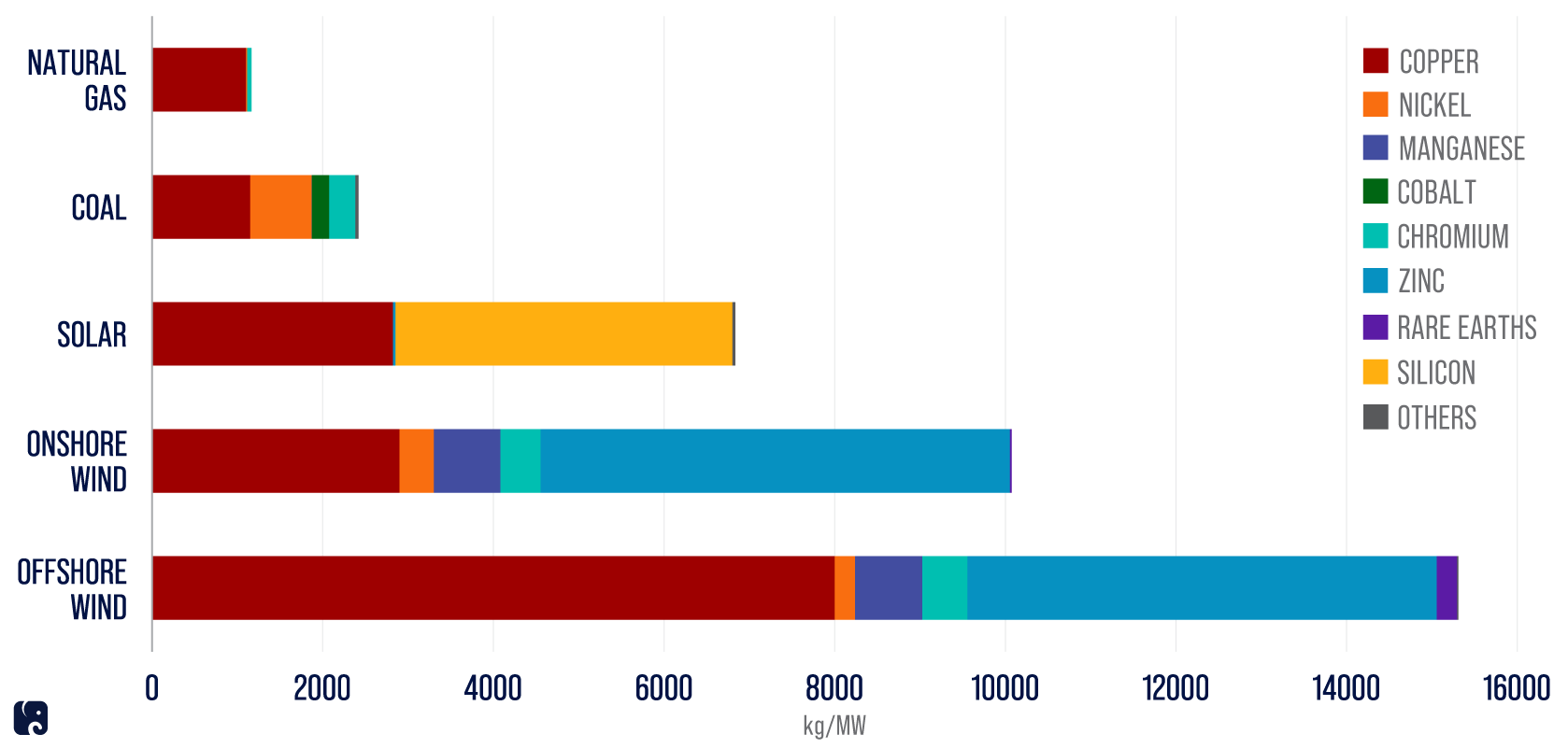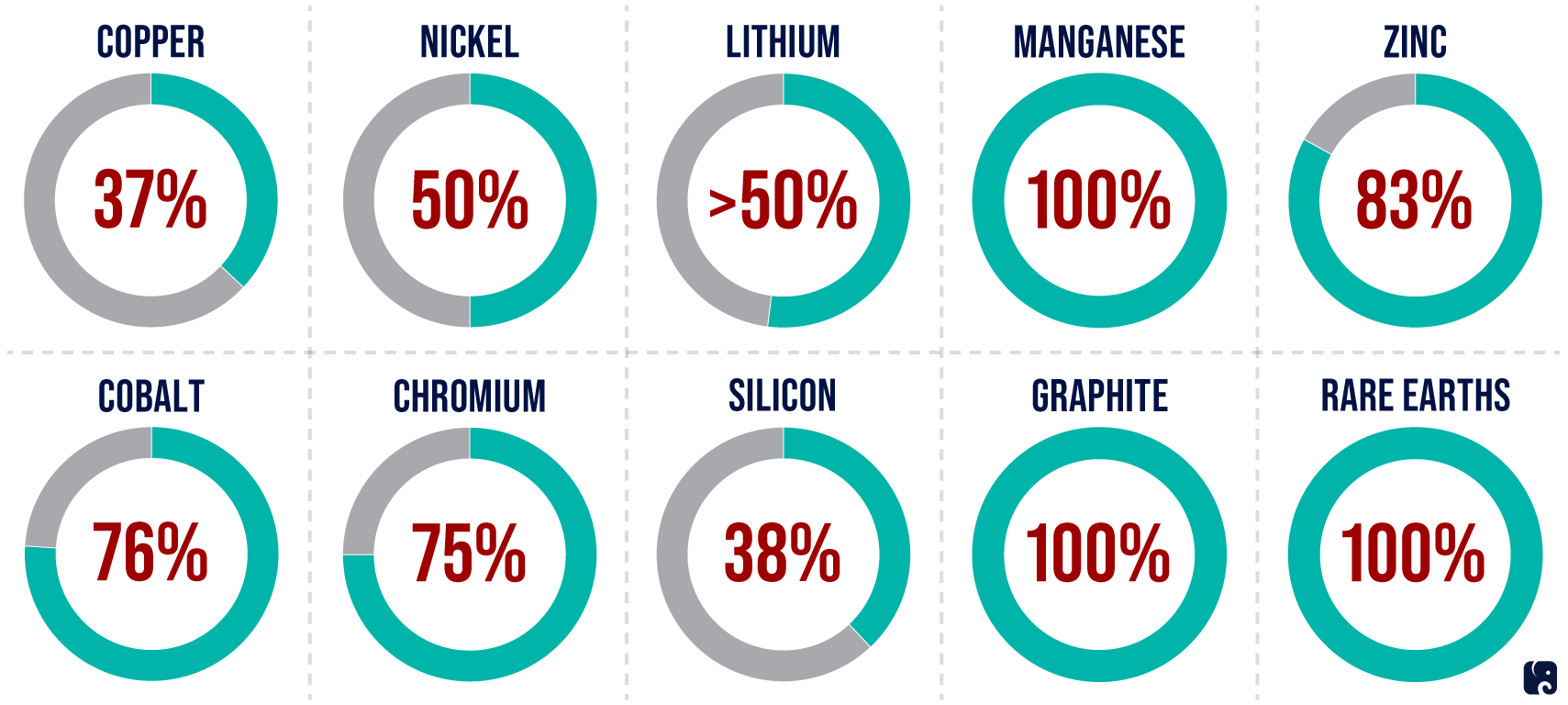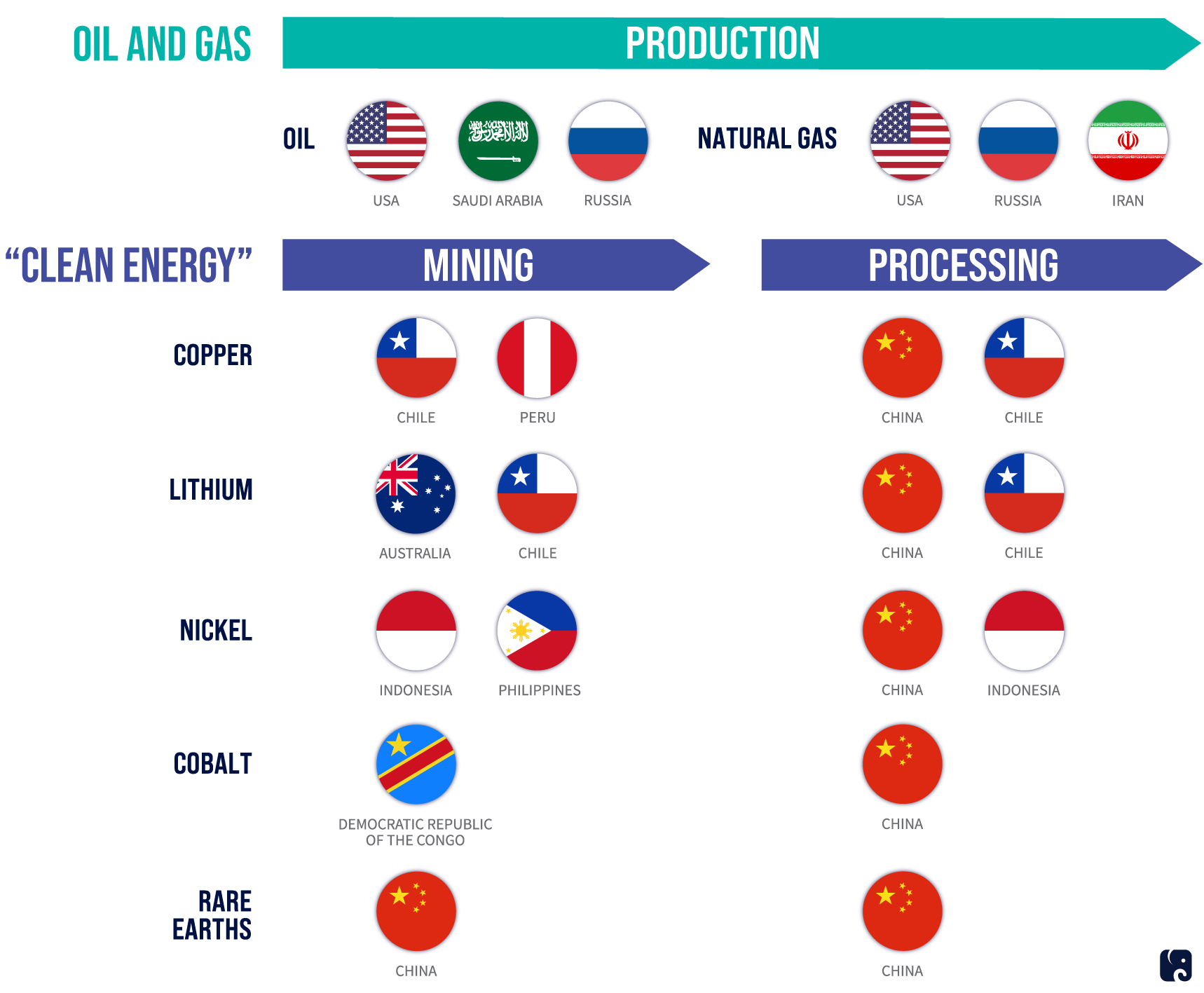Democrats' Growing Crisis in Critical Minerals
KEY TAKEAWAYS
- Democrats’ push for renewable energy and electric vehicles will accelerate a crisis in the supply of critical minerals used in many industries.
- The United States is dependent on imports from foreign nations, including adversaries, for many critical minerals.
- Expanding domestic production would help cut the United States’ dependence on foreign nations and avoid future supply-chain crunches that threaten our economy.
Democrats are pushing massive increases in the use of electric vehicles and renewable energy. Those energy sources, such as solar and wind, require far more of certain minerals for which the United States depends on imports. These elements were already essential to countless other industries and products, and our lack of domestic production threatens supply-chain problems and our economy. Democrats’ plans will only make this crisis worse.
Renewables Use More Critical Minerals than Traditional Energy

Source: IEA
Dependence on Foreign critical minerals
As defined by the Department of the Interior, critical minerals are essential to the economic and national security of the United States and have a supply chain that is vulnerable to disruption. Following a presidential directive in 2017, the department published a list of 35 minerals regarded as critical, which it expanded to 50 in 2021. The list includes specific elements that, as a group, are known as rare earth elements.
While critical minerals are necessary for traditional energy and vehicles, Democrats’ heedless push for “green” energy will cause demand to explode. According to a report by the International Energy Agency, electric vehicles require six times the amount of minerals as their conventional counterparts, including far more copper, nickel, lithium, manganese, cobalt and graphite. Onshore wind farms demand nine times the minerals of a gas-fired facility.
While the United States produces some critical minerals and has the capacity to produce more, we are perilously dependent on imports from foreign countries for many minerals. In 2020 the United States was 100% import reliant for 17 minerals and was more than 75% reliant for another 23 more according to the U.S. Geological Survey. Of the 64 elements analyzed by the USGS, China was the leading source of imports for 20 of them, including rare earths.
U.S. Reliance on Imports for Critical Minerals Used in “Green” Energy

Source: USGS
This import dependence applies to many critical minerals used in the production of electric vehicles and renewable energy. IEA’s analysis shows a typical EV requires 24.5 kg of manganese, compared to 11.2 kg in a conventional car, and 66.3 kg of graphite, versus none in a conventional vehicle. The United States is totally dependent on foreign imports for both of these minerals. Zinc is an important component in wind power equipment. In 2020, USGS says we were 84% dependent on foreign imports for zinc.
The Case for Domestic Production
President Biden and Democrats in Congress have pushed schemes for an abrupt transition to renewable energy and electric vehicles. In addition to the glaring challenges of eliminating reliable, affordable, and secure energy sources, these plans raise concerns about the massive need for critical minerals to carry out the left’s initiatives.
Major Producers in the Energy Supply Chain

Source: IEA
Unlike oil and gas, where the U.S. has led production and became a net energy exporter, the minerals required for “clean energy” come from all over the globe. China plays a dominant role in the supply chain for these minerals.
Rather than look for ways to increase domestic production of these materials, Democrats have pushed measures to increase costs for domestic mining operations and to stifle production as part of their reckless tax and spend spree. Many of these minerals are located on federal land. Democrats have sought to shrink the number of acres available for mining as part of their partisan bill, including blocking a project in Arizona that reportedly could provide one quarter of the copper needed by the United States. The Biden administration took action last October to prevent a nickel and copper mining project in Minnesota from moving forward. After President Biden pleaded with OPEC and Russia to increase oil output, it is clear he is comfortable relying on foreign suppliers for critical energy-related supplies. Under Democrats’ reckless tax and spend spree, they will expand our dependence on Chinese minerals even further, despite that country’s reliance on forced labor to produce minerals.
Understanding the need to bolster America’s domestic supply chain, in 2020 Republicans included language in appropriations legislation requiring the Interior Department to keep its list of critical minerals current, to conduct an extensive assessment of domestically available resources, and to support workforce needs. Last spring, a group of Republican senators introduced legislation to modernize and expedite the permitting process for new domestic mines. This legislation was enacted as part of the Infrastructure Investment and Jobs Act. Republicans have made clear we need to increase domestic mineral production, and senators have raised the issue repeatedly with the Biden administration.
Critical minerals are indispensable, and they will be even more important in the future whether Democrats succeed in their schemes or not. A secure supply of domestic critical minerals will help alleviate our foreign dependence and create jobs.
Next Article Previous Article
